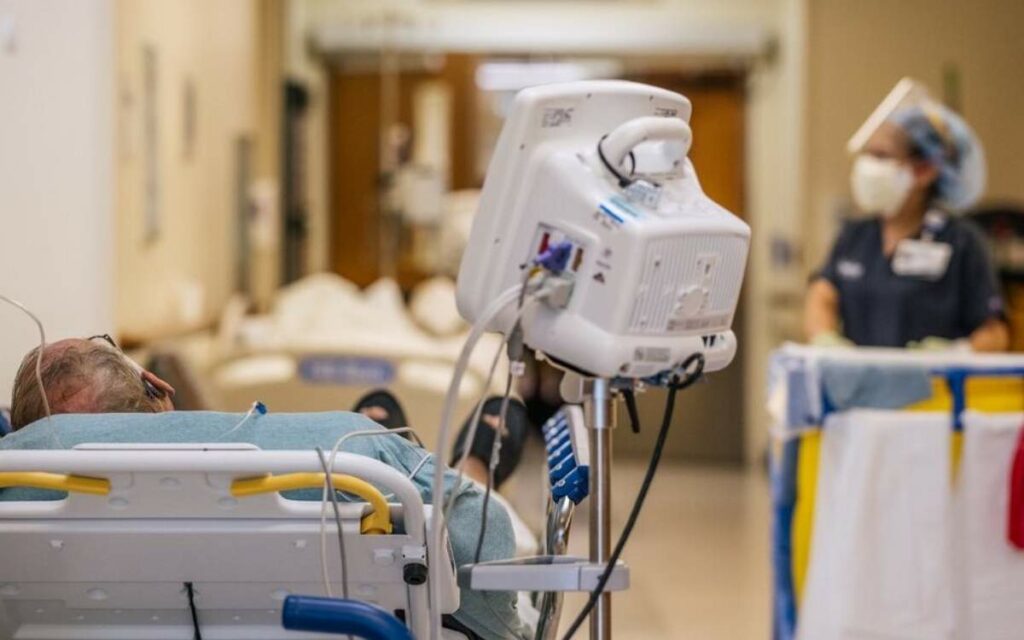
To help fix our fledgling system, we need better data, more family doctors, higher-performing emergency wards, and greater involvement from the private sector. Photo credit: Getty Images/Brandon Bell
Yeah! The federal and provincial governments have done a deal to increase Ottawa’s share of health funding by $46.2 billion over ten years. While that is a lot of zeros, it falls far short of the $300 billion the provinces were asking for in new money.
Still, a deal is good news. Premiers, health ministers and the Prime Minister knew the public was in no mood to witness another federal-provincial squabble. The next step now is for each province to complete a bilateral deal with Ottawa to meet regional needs.
Perhaps we can now get on with the business of making substantial changes that might actually improve health outcomes this time. Because if all we do with the new money is spend it like we have the old money, this will have all been for naught. And Canadians will remain saddled with one of the most expensive systems among OECD countries that produces some of the worst results.
Wait lists will continue to grow, emergency wards will continue to clog up and the system will almost collapse again when the next pandemic-type crisis hits, as it inevitably will.
Newspapers, blogs and podcasts have been filled for months with health experts’ views on how to fix the system. None of them will be easy. None of them will be a magic bullet nor will they be instituted without controversy. But there are some key recommendations that could well start making a difference.
First, a major plus in the federal-provincial agreement is a clear recognition that for any of this to work, we need better data about everything, about various health outcomes and particularly about how many health care professionals we really have, and we really need. As president of the Canadian Medical Association, Dr. Alika Lafontaine said recently: “It was very evident in the midst of the pandemic that our lack of data on patient needs and who can provide that care was an Achilles heel.”
And to the conspiracy advocates out there, this does not mean governments will be sharing your personal health data.
Secondly, we need to turn off the tap of patients flooding emergency wards because they don’t have a family doctor. Approximately a quarter of Canadians do not have one and with a large number of doctors cutting back hours and retiring, coupled with a population that is both growing and getting older, the situation will only get worse.
Governments, medical schools and licensing bodies have to get their act together to find ways to increase the number of home-grown people who will go into family medicine and increase those from other countries who wish to practice here.
Thirdly, how do we increase the capacity, performance, and flexibility of emergency wards? There is a long list of possible options to be pursued that will help attract and retain staff for emergency rooms, reduce burnout, provide more hospital beds and improve management.
And finally, let’s leverage the private sector where it makes sense to improve both access, quality and efficiency. Ontario has already taken a modest step in this direction by expanding out-of-hospital clinics to deal with less complicated surgical procedures. Patients would continue to pay with their OHIP cards, not their credit cards.
There are good people working hard throughout the system every day, finding ways to provide good care despite the many obstacles in their path. There are anxious members of the public, worried about where they will get care when they need it or if it will even be available.
Using the new money wisely will not be easy. The health care system is bureaucratic, complex, slow-moving and wrapped up in red tape. Political minefields abound.
It will take governments who are courageous, transparent, persistent and accountable. In our current political environment, that is a tall order. But the public expects nothing less. Let’s not mess it up again.

Janet Ecker is a former Ontario Finance Minister, Minister of Education, Minister of Community and Social Services and Government House Leader in the governments of Premier Mike Harris and Premier Ernie Eves. After her political career, she served as the founding CEO of the Toronto Financial Services Alliance, a public-private partnership dedicated to building Toronto region into an international financial centre. She currently sits on a number of corporate and non-profit boards, agencies and advisory committees.
Ms. Ecker received the Order of Canada for her public service contributions and was recognized as one of the “Most Influential People in the World’s Financial Centres” by Financial Centres International. She also received a “Canada’s Most Powerful Women: Top 100 Award” from the Women’s Executive Network and the Richard Ivey School of Business, among other awards. She is also one of the founders of Equal Voice, a national, multi-partisan organization working to elect more women.




















